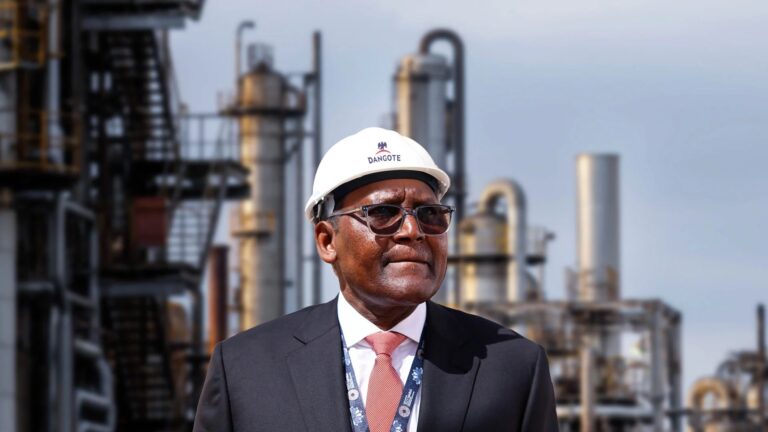Aliko Dangote, President of the Dangote Group, has revealed that Nigerians are currently paying only 55% of what citizens in other West African countries pay for petrol—thanks in part to output from his massive refinery.
During a strategic visit by Dr. Omar Touray, President of the ECOWAS Commission, to the 650,000 barrels-per-day Dangote Refinery, the billionaire industrialist highlighted the economic benefits of local refining. A press release issued on Sunday detailed the event and Dangote’s key remarks.
According to Dangote, petrol at the refinery is being sold for between ₦815 and ₦820 per litre, while neighboring countries pay an equivalent of ₦1,600 per litre (around $1). He noted that many Nigerians remain unaware of just how much they’re saving.
“People often don’t realize the advantage they now enjoy,” he said. “Our local pricing is nearly half of what others across the region are paying.”
He also pointed to the diesel price drop as another example of the refinery’s impact. Since domestic production began, diesel costs have dropped from ₦1,700 to ₦1,100, a decline that has supported several industries, including mining, agriculture, and manufacturing.
Dangote emphasized that Africa can only move forward by reducing its reliance on imports and promoting intra-continental trade. He said the refinery serves as proof that large-scale, high-standard industrial projects can be executed in Africa.
“So long as we continue importing goods we are capable of producing, economic growth will remain stunted,” he asserted. “This refinery demonstrates that Africa can build for itself—and at scale.”
He also addressed skeptics who have questioned the facility’s capacity to meet both Nigeria’s and West Africa’s fuel demand. According to Dangote, the refinery is more than capable of supplying the region, and ECOWAS officials were there to witness its scale and potential firsthand.
While keeping details under wraps, Dangote hinted at major upcoming projects, saying there is a bigger plan underway that hasn’t been made public yet. He assured Nigerians that the refinery was built with them in mind and will continue to deliver tangible benefits.
“We built this for Nigerians,” he said. “The benefits are just beginning.”
He concluded by reaffirming that domestic refining is central to price stability, energy security, and economic independence—a model he believes other African nations should adopt.

